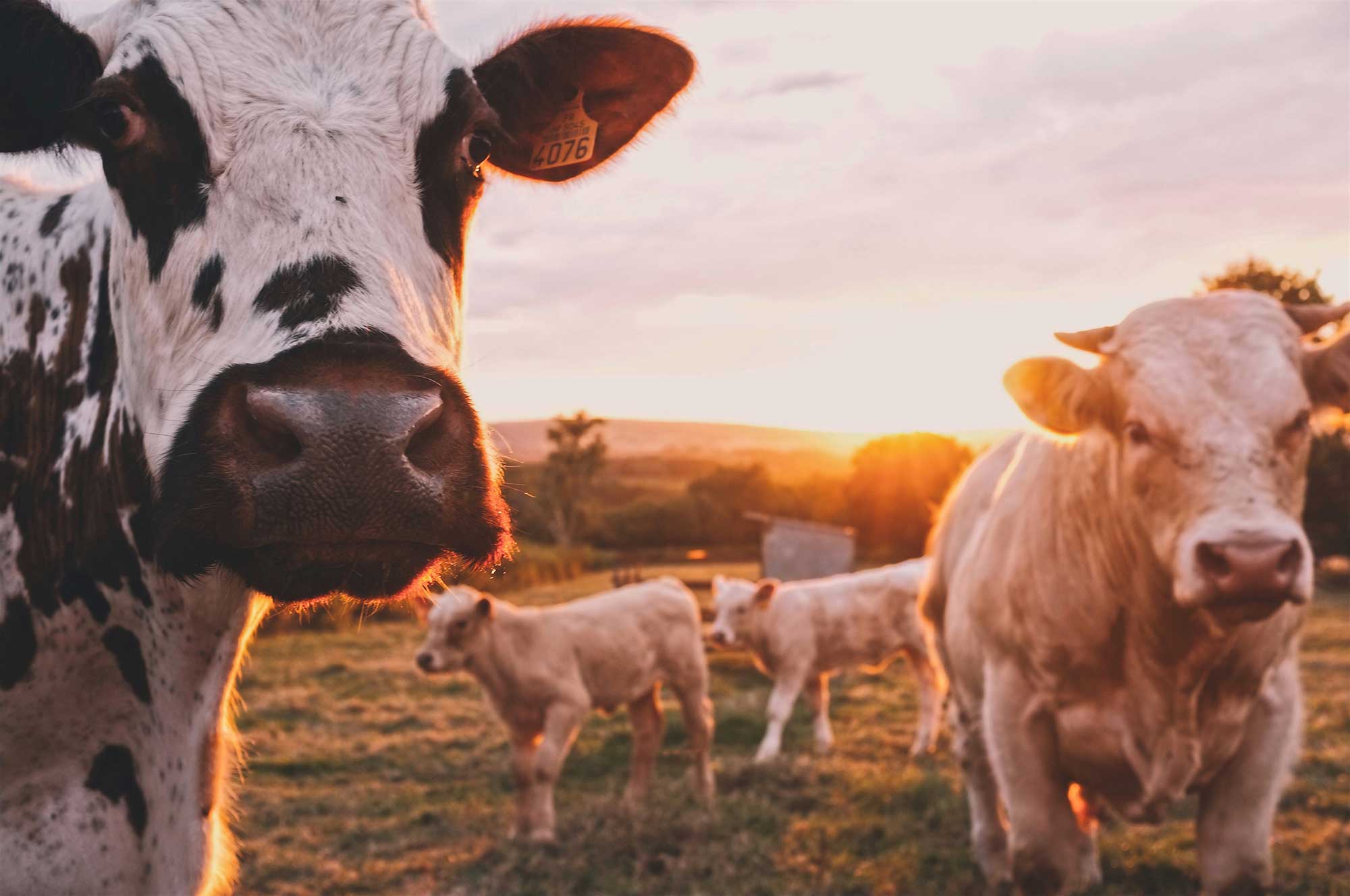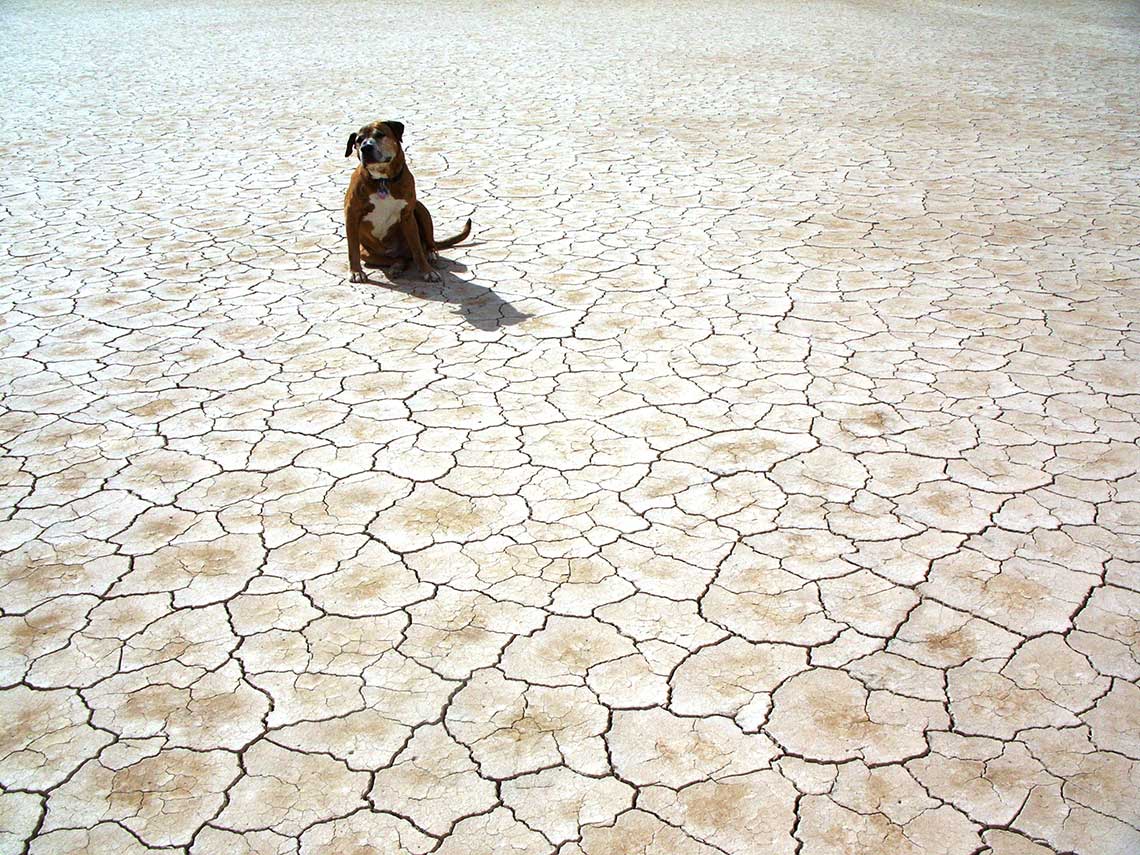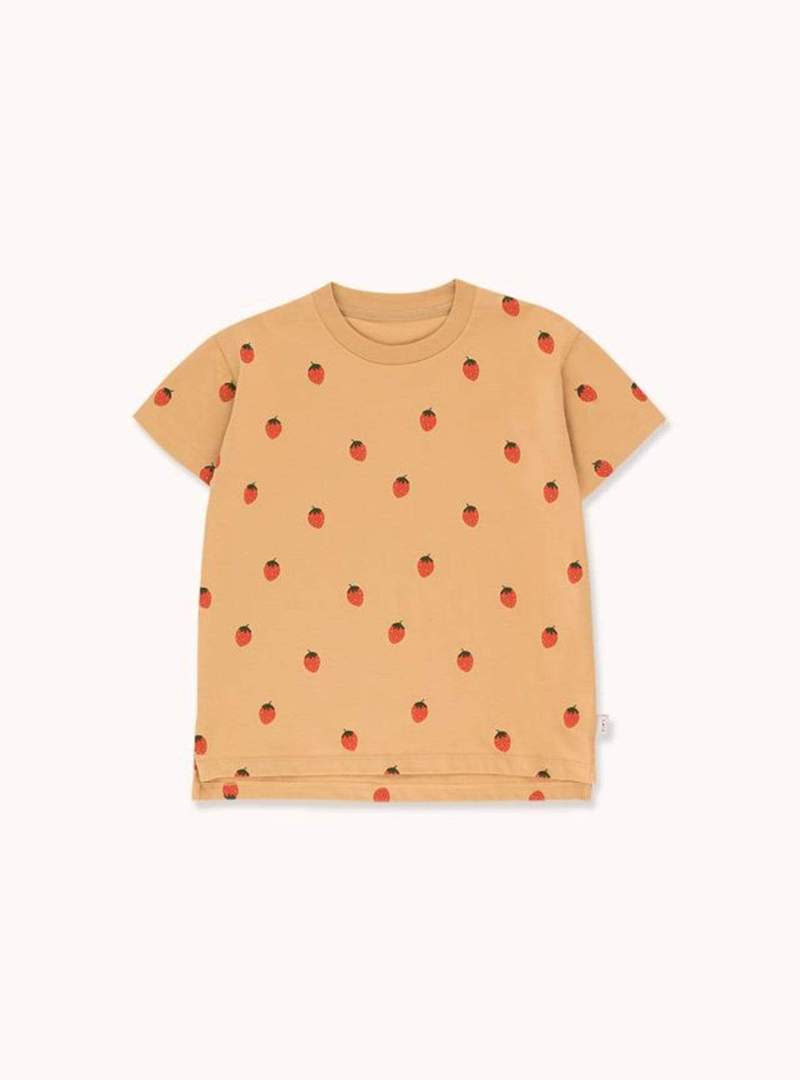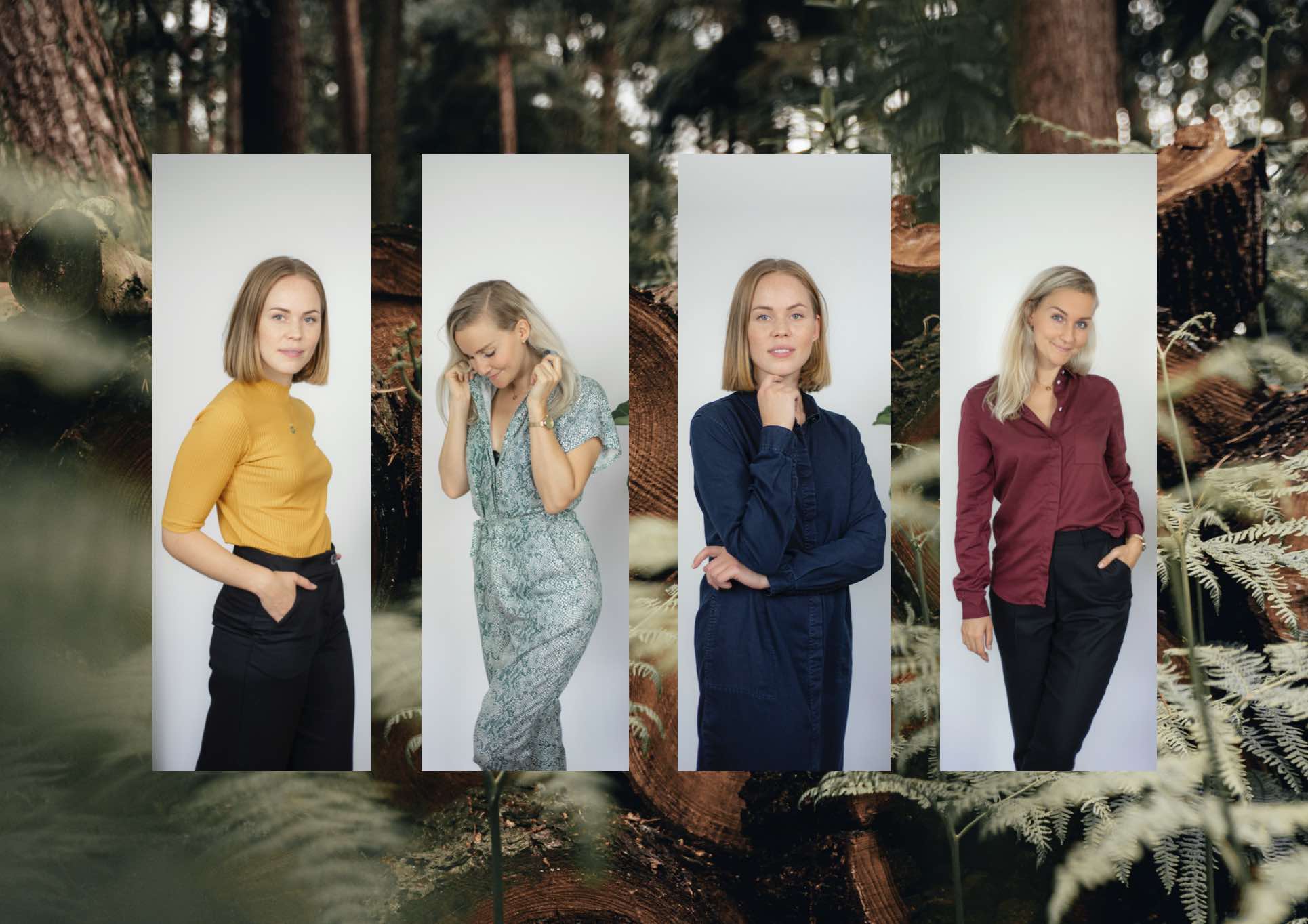 Vegan, fair & sustainable shopping in The United Kingdom 4.8
Vegan, fair & sustainable shopping in The United Kingdom 4.8 



 Check out reviews
Check out reviewsWhat Is Veganism And Why Go Vegan?
 Kim
Kim

What is veganism?
In case you were wondering: veganism is a lifestyle in which one aims to reduce all forms of animal exploitation as much as possible and in all areas of one’s life – whether it comes to life choices, food, clothing or any other purchases. As humans, we can simply do without any animal products and we therefore prefer to live by the words ‘live and let live’. But without having to compromise on comfort, pleasure, budget and the happiness of our taste buds.
- Reading tips: What is vegan fashion? and Why don't vegans wear wool?
Although one’s switch to veganism is often fueled by ethical motives and animal compassion, a vegan lifestyle brings about many other positive effects – on fellow humans, the environment and even your personal health.
Vegan for the animals
One may, for instance, become vegan in order to stop contributing to animal suffering. All animals have the capacity to suffer in the same way and to the same extent as humans do. Animals feel pain, pleasure, fear, frustration, loneliness and familial love. But by using animal products or services that use (working) animals, we choose to ignore the animals’ rights and needs (like the need to not be kept in a pen, to not be tested on, and to not be killed).
Together, the millions of vegans currently living in Europe drastically limit the yearly number of animals that are bred, locked up, exploited and killed prematurely. This shows that a single vegan actually does make an essential and positive difference by yearly saving dozens of animals from the cruel fate they would have otherwise faced.
-
In this speech at a university in America, vegan activist and speaker Gary Yourofsky clearly explains what’s wrong with our usual way of treating animals. This video made a big impression on us and has played a major role in our journey to veganism.
-
Prior to that, we read the books The Virtues of the Table: How to Eat and Think by philosopher Julian Baggini and Eating Animals by Jonathan Safran Foer. These books caused a huge paradigm shift and we highly recommend reading them.
-
For more information about veganism, we kindly refer you to PETA, an animal rights organization that painfully exposes the hidden animal suffering in today’s world.
Continue reading the article below this image.

Vegan for the environment
Increased awareness about the disastrous effects that livestock farming has on the environment can also be a reason for one to turn vegan. Switching to a vegan lifestyle is the perfect way to drastically reduce your carbon footprint and negative impact on the planet.
The United Nations mentions industrialised meat production as the second largest cause of environmental problems, including water and air pollution, soil pollution, acidification and degradation of biodiversity – caused by, among other things, the deforestation of the rainforest (trees are cut down to make room for the cultivation of crops for cattle feed). According to the NVV (Dutch Association for Veganism), livestock farming is responsible for 18% of all humanity’s carbon emission, making it the world’s largest CO2 polluter. Hence, this industry has the biggest negative effect on global warming.
More and more scientific studies continue uncovering the damage we cause to the environment through livestock farming. To mention a few:
-
“Avoiding meat and dairy is ‘single biggest way’ to reduce your impact on Earth.” The Guardian, 31 May 2018.
-
“Huge reduction in meat-eating ‘essential’ to avoid climate breakdown.” The Guardian, 10 October 2018.
-
“New study: plant-based diet may save the planet.” VegNews, 6 August 2015.
-
“Meat eaters are destroying the planet, says report.” Independent, 5 October 2017.
-
“Final call to save the world from 'climate catastrophe'.” BBC, 8 October 2018.
-
“Waarom je als veganist ook heel veel water bespaart.” NVV, 1 March 2016.
Vegan for our fellow humans
‘Animal feed’ is being cultivated on a large scale – crops that are eaten by cattle, but instead could also be used to feed millions of people directly. Because of our current food system, far fewer mouths are being fed. And hence, this system is unnecessarily yet strongly contributing to the unequal food distribution in the world.
To ‘produce’ meat, dairy and eggs, cattle feed (like soy and corn crops) must be grown on a very large scale. Currently more than 83% of all agricultural land is used for livestock, while it only makes for 18% of our daily calories (see The Guardian article above). To produce 1 kg of meat, on average 7 kg of cattle feed are needed. For the production of 1 kg beef, on average 15415 liter water is used.
It would be much more efficient to use agricultural land to produce food that’s meant for direct human consumption. Such system would also contribute to the reduction of the global food crisis. This claim is supported by several recent studies and research articles in mainstream media, including the sources below.
-
“The opportunity cost of animal based diets exceeds all food losses.” Proceedings of the National Academy of Sciences, 10 April 2018.
-
“Massive reduction in meat consumption and changes to farming vital to guarantee future food supply, major study says.” Independent, 10 October 2018.
-
“Feeding 10 billion people by 2050 within planetary limits may be achievable.” American Association for the Advancement of Science, 10 October 2018.
-
“Global shift to vegan diet would sustainably feed 10 billion people, study finds.” Live Kindly, 10 October 2018.
-
“Plant-based diets could erase world hunger, says new report.” Live Kindly, 13 May 2018.
-
“Feeding the future; how can we possibly feed 7 billion people?” Infographic by PETA.
-
“Moving To A Vegan Diet Could Feed The World, Says Study.” Plant Based News, 25 July 2018.
Continue reading the article below this image.

Vegan for your own health
With a balanced, plant-based diet, you get all the nutrients you need to stay healthy and energetic. The only supplement that you have to take is vitamin B12. Usually, because the vegan diet deviates from the ‘norm’, vegans are extra cautious about the nutrients in their food. They often eat healthier and regularly have their blood tested to check if their blood values are still up to standard. Hence, vegans are considerably more aware of their nutritional intake than the average individual.
By eating plant-based (more often), you also reduce the chance of cardiovascular disease, cancer and many other diseases, according to the NVV. Plant-based foods also contains zero cholesterol and fewer saturated fats. It’s not surprising that a plant-based lifestyle is becoming increasingly popular among top athletes.
In general, it can be said that plant-based foods are suitable for everyone, at any age and in every life phase. This has been confirmed by the world’s largest dietitian organization:
-
“Position of the Academy of Nutrition and Dietetics: Vegetarian Diets.” Journal of the Academy of Nutrition and Dietetics, December 2016.
Why just you alone are capable of making a huge difference
One is none? False. By eating plant-based, you daily save 4163 liters of water, 20 kg of grain, 2.7 m2 of forest (no need to deforest and grow animal feed), 9 kg CO2 emissions and the life of 1 animal. That’s a huge win on a yearly basis!
Each time you use your wallet and fork for a vegan choice, you cast a vote for the reduction of animal suffering. For a better environment. For the reduction of world hunger. And for a healthier you.
.jpg)
 T-Shirts & Tops
T-Shirts & Tops  Shirts & blouses
Shirts & blouses  Dresses
Dresses  Skirts
Skirts  Pants
Pants  Jeans
Jeans  Knitted sweaters & cardigans
Knitted sweaters & cardigans  Hoodies & sweatshirts
Hoodies & sweatshirts  Coats & jackets
Coats & jackets  Suits & co-ord sets
Suits & co-ord sets  Lingerie & underwear
Lingerie & underwear  Legwear
Legwear  Lounge & nightwear
Lounge & nightwear  Sportswear
Sportswear  Jumpsuits & dungarees
Jumpsuits & dungarees  Maternity Clothing
Maternity Clothing  Shorts
Shorts .jpg) Swimwear
Swimwear 
 Boots
Boots  Sneakers
Sneakers  Slippers
Slippers  Heels
Heels  Loafers & flats
Loafers & flats  Hiking & sports shoes
Hiking & sports shoes  Lace-up shoes
Lace-up shoes  Sandals
Sandals  Shoe care & accessories
Shoe care & accessories 
 Backpacks
Backpacks  Crossbody bags
Crossbody bags  Handbags
Handbags  Shoulder bags
Shoulder bags  Bum & belt bags
Bum & belt bags  Shoppers & Totes
Shoppers & Totes  Laptop bags
Laptop bags  Travel bags & sports bags
Travel bags & sports bags  Clutches
Clutches  Toiletry Bags
Toiletry Bags  Cycle bags
Cycle bags 
.jpg) Hats
Hats  Scarves
Scarves  Gloves
Gloves  Jewelry
Jewelry  Hair accessories
Hair accessories  Watches
Watches  Belts
Belts  Wallets
Wallets  Sunglasses
Sunglasses  Laptop sleeves & phone cases
Laptop sleeves & phone cases  Key rings
Key rings  Face masks
Face masks 
 T-Shirts & Polo's
T-Shirts & Polo's  Shirts
Shirts  Jeans
Jeans  Pants
Pants  Coats & jackets
Coats & jackets  Knitted sweaters & cardigans
Knitted sweaters & cardigans  Hoodies & sweatshirts
Hoodies & sweatshirts  Underwear
Underwear  Socks
Socks  Sportswear
Sportswear  Shorts
Shorts  Swimwear
Swimwear  Lounge & nightwear
Lounge & nightwear  Sneakers
Sneakers  Boots
Boots  Dress shoes
Dress shoes  Hiking & Sports Shoes
Hiking & Sports Shoes  Slippers
Slippers  Loafers & mocassins
Loafers & mocassins  Flip flops & sandals
Flip flops & sandals 
 Backpacks
Backpacks  Shoulder bags
Shoulder bags  Cotton bags
Cotton bags  Toiletry bags
Toiletry bags 
.jpg) Hats & beanies
Hats & beanies  Watches
Watches  Belts
Belts  Wallets
Wallets  Ties & bow ties
Ties & bow ties  Sunglasses
Sunglasses  Key rings
Key rings 
 Bronzer
Bronzer  Concealer
Concealer  Powder
Powder  Blush
Blush  Highlighter
Highlighter 
 Eyeliner & eye pencil
Eyeliner & eye pencil  Eyeshadow
Eyeshadow 

 Lipstick
Lipstick  Lip liner
Lip liner 

 Face cleanser
Face cleanser  Toner
Toner  Exfoliants
Exfoliants  Serum
Serum  Moisturiser
Moisturiser  Eye cream
Eye cream  Face masks
Face masks  Face scrub
Face scrub  Lip balm
Lip balm 
 Shampoo
Shampoo  Conditioner
Conditioner  Hair care
Hair care  Hair styling
Hair styling 
 Hands & feet
Hands & feet  Shower
Shower  Body lotions, butters & oils
Body lotions, butters & oils  Deodorant
Deodorant  Oral care
Oral care 


.jpg) Candles & fragrance sticks
Candles & fragrance sticks .jpg) Vases & planters
Vases & planters  Lighting
Lighting .jpg) Cushions
Cushions  Other home decor
Other home decor .jpg) Furniture
Furniture 
 Tableware
Tableware .jpg) Kitchen tools
Kitchen tools .jpg) Storage jars
Storage jars 
 Bed sheets
Bed sheets  Duvet covers
Duvet covers  Throws & blankets
Throws & blankets  Pillow covers
Pillow covers 
 Cleaning
Cleaning  Laundry bags
Laundry bags .jpg)
.jpg)
.jpg) (Reusable) Notebooks
(Reusable) Notebooks  Pencil cases
Pencil cases .jpg)

 Clothing
Clothing  Shoes
Shoes  Bags
Bags  Accessories
Accessories  Toys
Toys 
 Clothing
Clothing  Accessories
Accessories  Toys
Toys 

